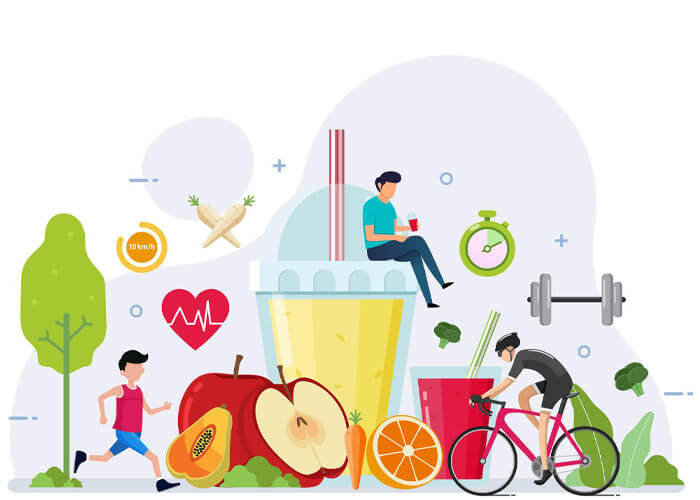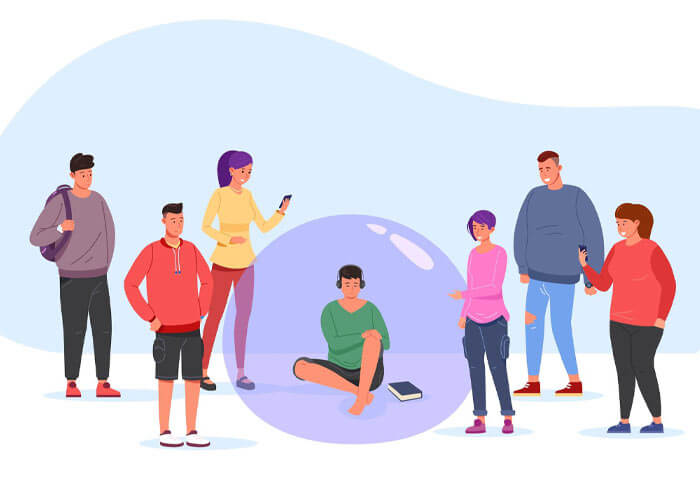۳۰ موضوع پرتکرار با چند سوال احتمالی برای پارت سوم اسپیکینگ آیلتس:
1. Education:

• What are the advantages and disadvantages of online education?
• How has technology impacted the way students learn?
• What qualities make a good teacher?
• Should students have a say in choosing their curriculum?
2. Technology:
• How has technology changed the way people communicate?
• What are the potential drawbacks of excessive screen time?
• Do you think AI will replace human jobs in the future?
• Should governments regulate technology companies?
3. Health and Lifestyle:

• How can people maintain a healthy lifestyle in a busy world?
• What are the health benefits of regular exercise?
• Should governments impose taxes on unhealthy foods and drinks?
• What are the effects of stress on health?
4. Environment:
• What measures can individuals take to reduce their environmental impact?
• How can governments encourage people to be more environmentally friendly?
• Is climate change a global concern, and what should be done to address it?
• Should there be stricter regulations on industries that harm the environment?
5. Travel and Tourism:

• How has tourism affected the environment and local cultures?
• What are the advantages and disadvantages of traveling alone versus traveling with a group?
• How can tourism benefit a country’s economy?
• Should there be limits on the number of tourists visiting popular destinations?
6. Work and Employment:
• What are the challenges of finding a job in today’s competitive market?
• How important is job satisfaction for employees?
• What role does job security play in people’s career choices?
• Is it better to have a job that pays well or a job that you love?
7. Social Issues:

• How can societies address the issue of inequality?
• What are the causes and consequences of homelessness?
• How do social media and technology impact social interactions?
• Should governments provide more support for people with mental health issues?
8. Family and Relationships:
• What are the challenges of balancing work and family life?
• How has the concept of family evolved in recent years?
• What are the key factors in maintaining a successful marriage?
• How can parents ensure their children have a healthy upbringing?
9. Culture and Tradition:
• How important is it to preserve cultural traditions in the modern world?
• What role do traditional festivals play in society?
• Is globalization a threat to cultural diversity?
• How can individuals promote and celebrate their own cultural heritage?
10. Media and Entertainment:

• How does the media influence public opinion?
• What impact does violent or sensationalized media have on society?
• Is celebrity culture harmful or beneficial?
• How has the internet changed the way people access information and entertainment?
11. Art and Creativity:
• What role does art play in society?
• How do different forms of art (e.g., painting, music, literature) impact people?
• Should governments fund and support the arts?
• How has technology influenced the creation and consumption of art?
12. Science and Technology:
• What ethical concerns are associated with advancements in science and technology?
• How can technology be used to address global challenges such as climate change or healthcare?
• What are the potential risks of relying too much on technology?
• How do innovations in technology impact the job market?
13. Food and Diet:
• What are the health implications of different diets (e.g., vegetarian, vegan, Mediterranean)?
• How can individuals make informed choices about their diet?
• Should governments regulate the food industry to promote healthier options?
• What are the cultural and social aspects of food and dining?
14. Globalization:
• How has globalization affected local cultures and traditions?
• What are the benefits and drawbacks of a globalized economy?
• How can countries protect their industries and jobs in a globalized world?
• Is cultural globalization a positive or negative development?
15. Business and Economics:

• What are the factors that contribute to economic inequality within and between countries?
• How do businesses and industries influence government policies?
• What role should ethical considerations play in business decisions?
• How can countries stimulate economic growth and job creation?
16. Ethics and Morality:
• Are there universal ethical principles that apply to all cultures?
• How do ethical values impact personal and professional decisions?
• What are the ethical dilemmas associated with scientific research?
• Should individuals or governments be responsible for addressing moral issues?
17. Aging and Healthcare:
• How can societies address the challenges of an aging population?
• What are the key components of a good healthcare system?
• How can healthcare be made more accessible and affordable?
• What role do lifestyle choices play in maintaining good health as people age?
18. Immigration and Multiculturalism:
• What are the benefits and challenges of multicultural societies?
• How can countries effectively integrate immigrants into their communities?
• What impact does immigration have on the job market and social services?
• What policies can promote diversity and social cohesion?
19. Crime and Justice:
• What are the root causes of crime in society?
• How can the justice system be improved to ensure fairness and reduce recidivism?
• What are the arguments for and against the death penalty?
• How can communities work to prevent and reduce crime?
20. Future Trends and Predictions:

• What do you think will be the major challenges and opportunities in the future?
• How will climate change impact our lives in the coming decades?
• What technological innovations do you expect to see in the near future?
• How can individuals and governments prepare for an uncertain future?
21. Leadership and Management:
• What qualities make a good leader in a workplace or community?
• How can leaders effectively motivate and manage a team?
• What challenges do leaders often face, and how can they overcome them?
• Is leadership more about natural talent or learned skills?
22. Social Media and Online Communication:
• How has social media changed the way people communicate?
• What are the positive and negative aspects of online communication?
• How can individuals protect their privacy and mental health in the digital age?
• Should there be regulations on social media platforms?
23. Urbanization and City Planning:
• What are the advantages and disadvantages of living in a city?
• How can cities address traffic congestion and pollution?
• What makes a city a desirable place to live and work?
• How do urbanization trends affect rural areas and the environment?
24. Gender Equality and Women’s Rights:
• What progress has been made in achieving gender equality?
• What challenges do women still face in various aspects of life, including the workplace?
• How can societies promote gender equality and women’s rights?
• Are there cultural or societal factors that hinder progress in this area?
25. Education and Technology:

• How has technology changed the way students learn and teachers teach?
• What are the advantages and disadvantages of online education?
• Can technology replace traditional classroom education entirely?
• How should schools and educators adapt to technological advancements?
26. Consumerism and Materialism:
• What impact does consumerism have on people’s lives and the environment?
• How can individuals make more sustainable and conscious consumption choices?
• Are there cultural or societal factors that promote materialism?
• Should governments implement policies to curb excessive consumption?
27. Mental Health and Well-being:
• How can individuals maintain good mental health in today’s fast-paced world?
• What role does stress play in mental health issues, and how can it be managed?
• Are there stigmas associated with mental health, and how can they be addressed?
• Should mental health services be more accessible and affordable?
28. Immigration and National Identity:
• How do immigrants contribute to the cultural diversity of a country?
• What challenges do immigrants face when adapting to a new culture?
• How can countries balance the integration of immigrants with preserving their national identity?
• Are there concerns about immigration’s impact on employment and social services?
29. Ethics in Business and Technology:
• What ethical considerations should businesses and tech companies take into account?
• How can ethical behavior be promoted in the corporate world?
• Are there ethical concerns related to data privacy and artificial intelligence?
• Should companies prioritize profit or ethical responsibility?
30. Environmental Conservation and Sustainability:

• What actions can individuals take to reduce their environmental footprint?
• How can governments encourage businesses to adopt sustainable practices?
• What challenges do global efforts to combat climate change face?
• Should there be stricter regulations on industries that harm the environment?



